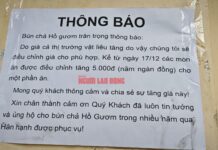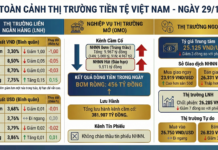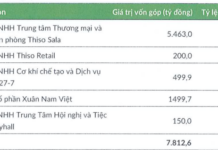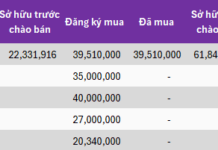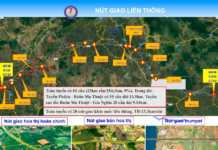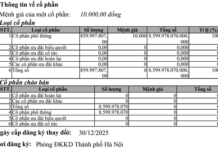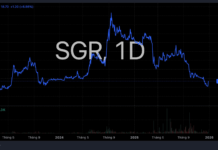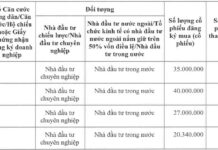The Ministry of Justice has recently announced the review of the proposal to issue a National Assembly resolution allowing the Housing Law of 2023 to take effect from July 1, 2024, six months earlier than stipulated by the law.
Conditions for Overseas Vietnamese to Own Housing in Vietnam
The Housing Law of 2023 introduces new regulations, including the housing ownership rights of Overseas Vietnamese. Specifically, point b, clause 1, Article 161 of the Housing Law of 2023 stipulates that for Overseas Vietnamese to engage in housing transactions, they must be eligible for housing ownership in Vietnam and are not required to have a registered residence in the location of the transacted property.
Additionally, Article 8 of the Housing Law of 2023 states that the determination of Overseas Vietnamese status will follow the Law on Nationality. The condition for housing ownership in Vietnam is that they must be permitted to enter the country.
Regarding the modalities, the Housing Law of 2023 does not specify how Overseas Vietnamese can own housing in Vietnam, unlike the Housing Law of 2014. Instead, it refers to the Law on Land, which states that Overseas Vietnamese who are permitted to enter Vietnam can own houses associated with land use rights as prescribed by land laws.
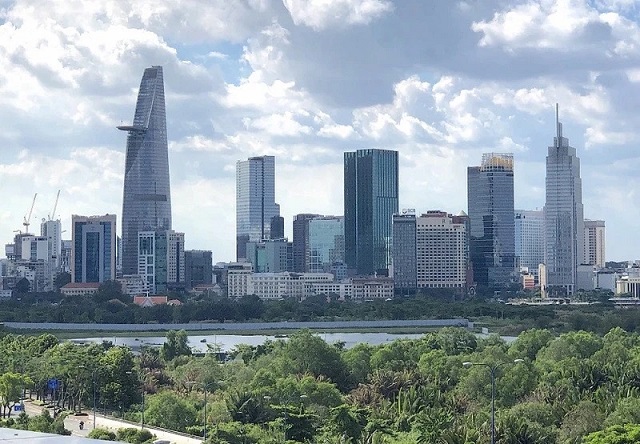 Illustrative image. Source: QH
|
According to ThS Ngo Gia Hoang from Ho Chi Minh City University of Law, Overseas Vietnamese are Vietnamese citizens and Vietnamese-origin individuals residing and living permanently abroad (according to clause 3, Article 3 of the Law on Vietnamese Nationality of 2008, amended in 2014). Therefore, Overseas Vietnamese refers to those who have permanently settled abroad. They may or may not hold Vietnamese citizenship but have Vietnamese origins. These individuals only need to be “permitted to enter Vietnam” to be eligible for housing ownership in the country.
|
Housing Ownership Needs of Overseas Vietnamese According to the Ho Chi Minh City Real Estate Club (HREC), of the over 10 million Overseas Vietnamese across 200 countries, approximately 3.8 million have reached retirement age. A significant number of them have assets and desire to return to Vietnam. Therefore, the demand for housing transactions among this group is expected to increase in the coming time. The Land Law of 2024 expands the possibility of land use rights for Overseas Vietnamese who are still Vietnamese citizens, which will contribute to increasing remittances to Vietnam, especially in the real estate sector. ThS NGO GIA HOANG, Ho Chi Minh City University of Law |
Regarding the modalities of housing ownership, the Housing Law of 2023 refers to the Land Law, ensuring a unified legal system. This reflects the legislative principle that the Housing Law focuses solely on housing and ownership, while the Land Law governs land use and associated rights.
Land Access Rights for Overseas Vietnamese with Vietnamese Citizenship
Clause 3, Article 4 of the Land Law of 2024 stipulates that land users include domestic individuals and Overseas Vietnamese who are Vietnamese citizens. Therefore, Overseas Vietnamese retaining Vietnamese citizenship will have the same rights as domestic individuals, including land access rights.
Specifically, individuals (including Overseas Vietnamese who are Vietnamese citizens) can obtain land use rights through transfer, donation, or inheritance (Article 28 of the Land Law of 2024). This is a new provision in the Land Law of 2024 compared to the 2013 version. According to the 2013 Land Law, in the case of land for residential purposes, all Overseas Vietnamese, regardless of their citizenship status, could only obtain land use rights through transactions involving houses attached to residential land use rights or by receiving land use rights in housing development projects (point d, clause 1, Article 169 of the 2013 Land Law).
Thus, the Land Law of 2024 has expanded land access rights for Overseas Vietnamese retaining Vietnamese citizenship. They will no longer face restrictions on land types or areas when receiving land use rights transfers, aligning with the wishes of Overseas Vietnamese to maintain connections with their homeland. This policy also contributes to attracting investment to Vietnam and realizing the Party and State’s policy of equal treatment for Vietnamese citizens, regardless of their residence.
New Provisions for Vietnamese-Origin Individuals
Regarding Vietnamese-origin individuals residing abroad without Vietnamese citizenship, the Land Law of 2024 maintains the current discriminatory policies. Specifically, according to point h, clause 1, Article 28 of the Land Law of 2024, Vietnamese-origin individuals can own houses through various modalities, including purchasing, lease-purchasing houses attached to land use rights, receiving land use rights in housing development projects, inheriting land use rights, and receiving donations of houses attached to land use rights from inheritors as prescribed by civil laws.
However, for donations of houses attached to land use rights from inheritors, the Land Law of 2024 restricts the donor to “inheritors.” This is a more limited provision compared to the current law, as the 2013 Land Law only stipulates “inheritance or donation of houses attached to land use rights” without restricting the donor (point d, clause 1, Article 169).
|
Inheritance of Land Use Rights by Vietnamese-Origin Individuals The type of land that Vietnamese-origin individuals residing abroad can inherit must be land for residential purposes and other types of land within the same land lot. If they do not meet the conditions for owning houses attached to land use rights in Vietnam, they will only receive the monetary value of the inherited land use rights. The state does not issue land use certificates to these individuals. Instead, they can only receive the value of the inherited land use rights through transfers. In this case, the inheritor can be named as the transferor or donor in the contract. If the land use rights have not been transferred or donated, the inheritor or their authorized representative must submit documents regarding the inheritance to the land registration organization for updates in the Land Register. (According to Articles 28 and 44 of the Land Law of 2024) |
Yen Chau




